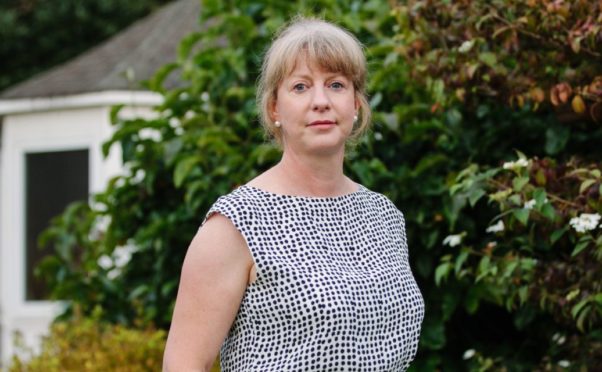
In 2007, as summer approached, Shona Robison had a lot to be happy about.
The Dundee East MSP was celebrating her re-election and, after the SNP’s victory in the May election, her promotion to Alex Salmond’s first ministerial team. As a new minister for public health, mother to a four-year-old daughter, and with her then husband, Stewart Hosie, the MP for Dundee East, down at Westminster for most of the week, Robison remembers her life was about constantly “spinning plates”.
She was also pregnant with her second child, a much-anticipated brother or sister for four-year-old Morag and, having crossed that “magical three-month mark”, she was now letting people outside her closest friends and family know she was expecting a baby.
“Despite the timing, I was really pleased to be pregnant,” she said. “Morag had been a little obsessed about having a sister – she was adamant it had to be a sister – and, although things were really busy, I was just delighted that, given I was nearly 41, things seemed to have happened pretty quickly and all seemed well.”
But then, just before Robison’s birthday in late May, and amid the search for a larger house to accommodate their growing family, she bent down to pick something up and felt a strange “ping” in her back, proceeded by what felt like period pain and then bleeding. Knowing none of this was good, Robison went to Ninewells Hospital to the early pregnancy unit where a scan confirmed there was no longer a heartbeat.
“It was all a bit of a blur at the time,” she says. “I think it was afterwards that I got more upset because at the hospital you are trying to take in the news that you are no longer pregnant. You are being asked about what you want to do, whether there should be any medical intervention.
“You are having loads of new information thrown at you. Everything is so busy, and you’re sort of on automatic pilot trying to take it all in but not really feeling quite there. Not really processing it at all.
“The staff at the hospital were really nice but what do you say to someone who has just been told they are no longer pregnant? I was a bit hazy about the information I was given but I do remember them saying that, because I was 41, if I wanted to try again I shouldn’t leave it too long and in that instance they would help me with an early pregnancy test to make sure everything was alright. I know that was well-intentioned, but really, trying again was the last thing on my mind.”
Speaking to The Sunday Post as she launches a campaign to improve the care and treatment of women suffering miscarriages, the former health secretary said: “I guess I left the hospital not really knowing what to expect physically. Emotionally, your hormones are still all over the place thinking you are pregnant while your body is telling you something else.
“I think they told me to expect blood, like a heavy period, and to look for some kind of mass but you don’t really know what that means until it happens. It was worse than I had thought it would be. Quite terrifying really. I had never had a miscarriage before, not that I was aware of anyway, and without being too graphic, there was quite a lot that came away. I was in the constituency office working when it happened and you know, it was a bit of a shock about how much blood and pain there was.
“Bearing in mind I had just got this really huge job as minister for public health and was up to high doh thinking about how we’d manage everything with a house move, a new baby, and so on. And, I guess, as a woman in politics and thinking back to attitudes 13 years ago, there was also a bit of me that couldn’t give myself time to deal with something like a miscarriage. I just thought I needed to get on with it.
“I remember thinking I couldn’t take time off. I wasn’t ill as such, but I was in pain and bleeding. I had a great relationship with my new private secretary who was a young man who I told what had happened and, in the end, I think I had to take a couple of days off. He was very sympathetic and made sure meetings were cancelled and so forth and I remember Nicola [Sturgeon] being very supportive. But, it’s that whole spinning plates thing, and feeling as a woman that this was just something you should just put up with.
“Actually, one of the hardest things was telling people I was no longer pregnant. We’ve all got it drummed into us that we should wait until the three months before saying anything, which I had done, and then I had to go back and tell them to just forget about it. That was the most upsetting thing. I remember being quite upset and telling my mother-in-law and my parents and thinking they had also all made plans, like me, about the future and a new baby in the family.”
Thirteen years on, Robison says that, despite her four years as health secretary in Nicola Sturgeon’s government, she hadn’t properly processed her own miscarriage or understood the wider impact of miscarriage on women and their health, until one of her own staff, Nadia El-Nakla, who is married to Justice Secretary Humza Yousaf, shared her experiences of multiple miscarriage.
Their campaign, called Changing Miscarriage Care, will be launched at Holyrood this week, with the support of the charity Tommy’s and other experts, to call for best practice in care and treatment to be adopted across NHS Scotland and to help raise awareness of the physical and emotional toll of miscarriage.
In less than three years, Nadia and Humza have had five pregnancies together with just one of those resulting in a baby when Amal was born safely at 36 weeks in May 2019. Their most recent miscarriage was just a month ago and their experience of both awareness and treatment has been mixed.
In September 2018 the couple discovered Nadia was pregnant for the third time. And, after two previous miscarriages, there was no real expectation this time around that things would go to plan. And, when she started bleeding at six weeks, they both believed this pregnancy would end the same way as the others. However, because this was potentially their third miscarriage, the couple were seen by a consultant and put on the hormone progesterone, which stopped the bleeding and the pregnancy continued normally until Amal’s birth.
Nadia says she can’t help wondering whether that simple treatment could have saved any of her other pregnancies. “I remember bleeding the second time saying please, is there just anything you can give me, anything you can try to stop the bleeding because on the scan I could see the heartbeat and that the baby was growing.
“I felt like I was begging, desperate, that there must be something they could try, but they said not. I now know that’s not entirely true. I’m not meaning the doctor or the nurse knew there was something and refused to give me it, but evidence-based research is now coming to light that shows progesterone can only have no effect or a positive effect. There is no negative effect. So, once a heartbeat is detected there’s a big case for saying a woman should be getting progesterone if they are bleeding in pregnancy. I’d like to see that option given routinely. For me, it did feel a little bit like I hadn’t had enough miscarriages yet to make it a choice. And that’s painful.
“A lot of people wouldn’t be prepared for what you go through. We minimise the actual experience of miscarriage all the time. I’m very vocal and strong. I know clearly what I want when I’m talking about my health, but what happens if a woman isn’t so confident or has language barriers, they’re not aware of what’s going to happen? I’ve been through this before and it’s just a very scary, traumatic experience. And then you’re supposed to just go to work the next day or just get on with it as if nothing has happened.”
Robison recognises that, as a woman who has suffered a miscarriage but also oversaw health during her time as cabinet secretary for health, the issue was never high on the agenda and she says that must change.
“I think back to my time as health secretary and, to be honest, because you can barely get your head above the parapet of waiting times, of A&E, and cancer rates, all of which are hugely, hugely, important, trying to find time to talk about, and think about, women’s health, perhaps gets crowded out by interest groups with a louder voice. I hope this campaign helps give voice to women who have miscarried and stops us thinking we should put up with things simply because we are women.”
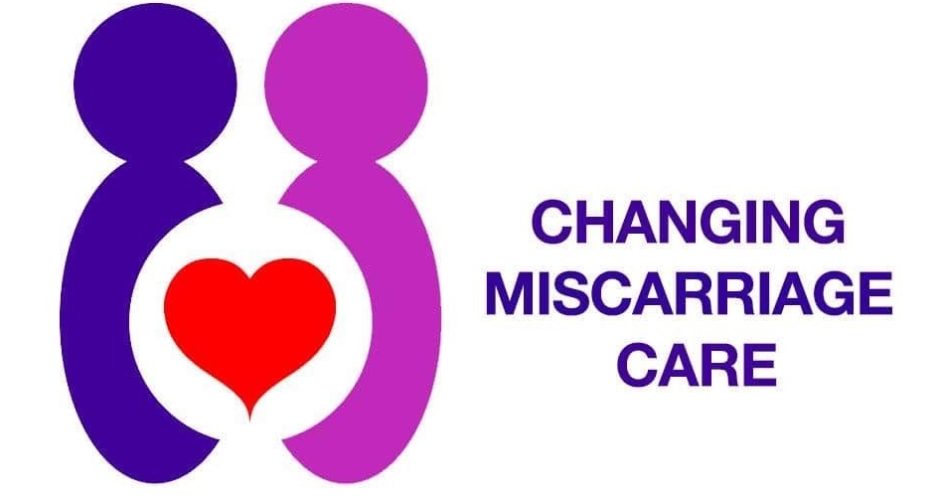
Up to one in four women have pregnancies that end in loss yet miscarriage is too often suffered in silence. The campaign, Changing Miscarriage Care, fronted by Shona Robison and Nadia El-Nakla, and supported by the charity, Tommy’s, aims to remove the health postcode lottery that applies to miscarriage and encourage women to talk about their experience.
They want to see small but important changes that would see education improve around the reality of miscarriage and consistent care and treatment in the NHS, including the option of progesterone when a miscarriage is threatened.
Share your story at changingmiscarriagecare@gmail.com

Enjoy the convenience of having The Sunday Post delivered as a digital ePaper straight to your smartphone, tablet or computer.
Subscribe for only £5.49 a month and enjoy all the benefits of the printed paper as a digital replica.
Subscribe

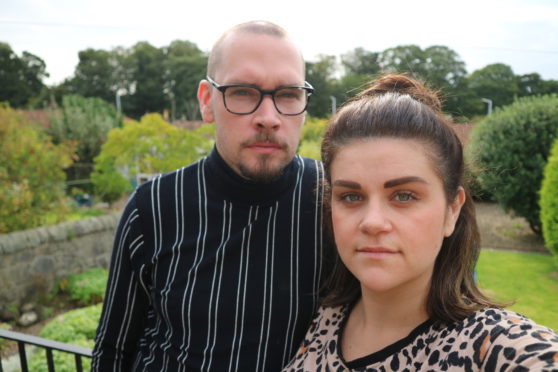
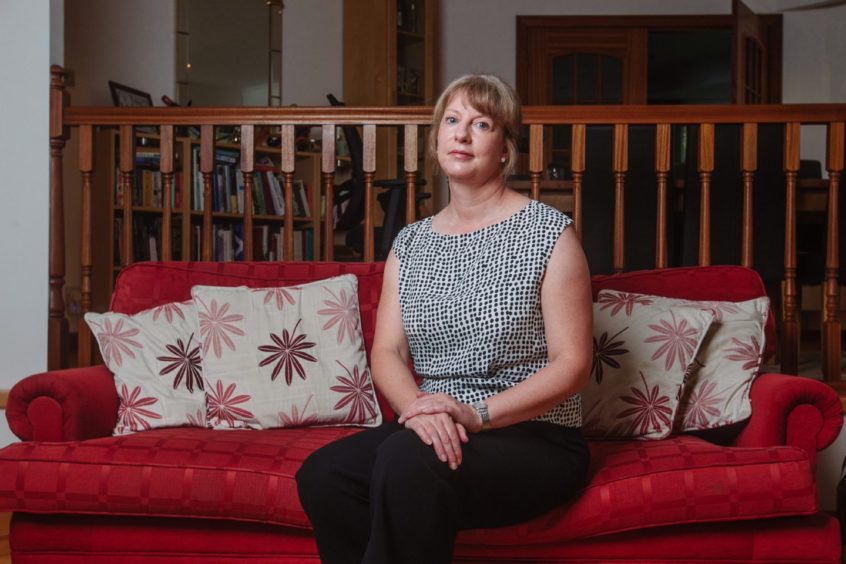 © Andrew Cawley
© Andrew Cawley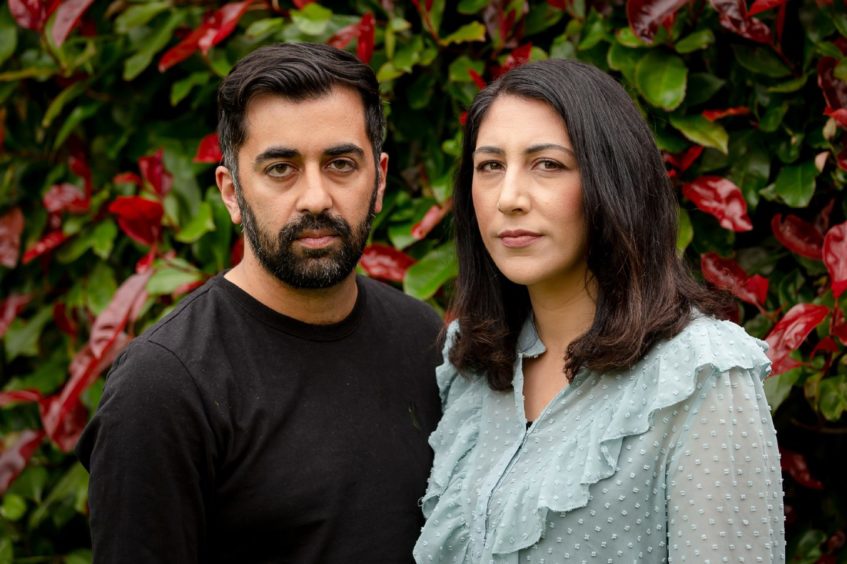 © Anna Moffat
© Anna Moffat